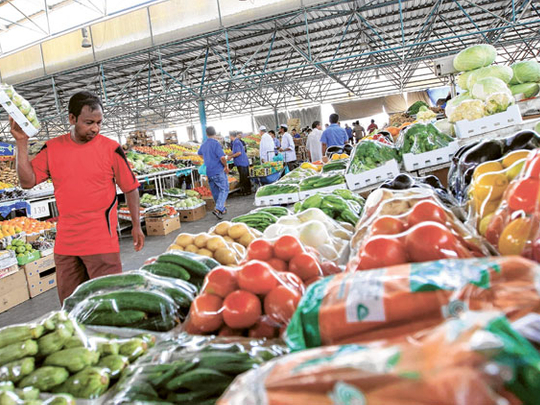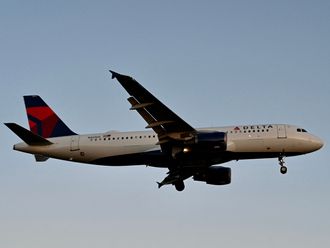
Dubai: Food imports by the Gulf countries will double by 2020 to meet demand by residents enjoying higher levels of income.
According to Economist Intelligence Unit figures released in June, by the close of the next decade, the region will see food imports climb to $53.1 billion, a spike of 105 per cent from last year's $25.8 billion in regional imports.
Research data suggests that the UAE will see a large jump in food imports to $8.4 billion by 2020, a 133 per cent increase from the $3.6 billion last year.
Numbers released in advance of the SIAL Middle East 2011 food fair also predict that the UAE's growing population will boost food consumption by 5.4 per cent annually from 7.8 million tonnes in 2011 to 9.7 million tonnes in 2015.
Statistics
Data reveal the UAE produces roughly 70 per cent of the fruit consumed domestically but still relies heavily on imported vegetables.
With a hot desert climate, lack of sufficient fresh water to grow crops and less than two per cent of land able to sustain agriculture in large quantities, imports by the Gulf are expected to grow at a yearly rate of 4.6 per cent.
The numbers mean that the region will continue to import from 85 per cent to 90 per cent of its foodstuffs annually.
Members of the food industry are weighing the growing trends in the lead-up to the major Middle East food fair in Abu Dhabi this month that showcases the food, hospitality and drink sectors.
Salon International de l'Alimentation global food fair group's SIAL Middle East 2011 event will take place November 21-23 in partnership with the Abu Dhabi Food Control Authority.
The event is expected to draw 12,000 trade visitors from 80 countries who will travel to Abu Dhabi to take in more than 500 exhibitors.
In a statement yesterday, Mohammad Jalal Al Reyaysa, SIAL Middle East chairman, said: "GCC countries currently import 90 per cent of all food products. With its population growing at three times the global average, the GCC region is increasingly depending on imports to meet food requirements.
"Adding to the challenge is the fact that GCC countries are some of the most water-scarce in the world, with only 1.4 per cent of land suitable for agriculture. Food security therefore is of prime concern and major challenge for the regional governments."












